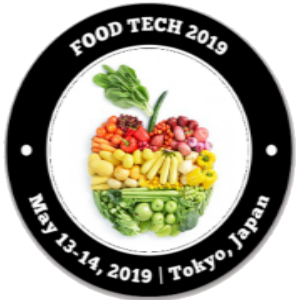
Pratiksha Shrestha
Department of Food Technology and Quality Control, India
Title: Extraction of crystalline nanocellulose from banana pseudostem and its utilization in developing drug loaded bio-nanocomposite film
Biography
Biography: Pratiksha Shrestha
Abstract
In this work Crystalline Nano Cellulose (CNC) was isolated from banana pseudostem waste by acid hydrolysis method and Tetracycline (TC) loaded nanocomposite was developed by crosslinking with (Butane Tetra Carboxylic Acid) BTCA and chitosan. Thus obtained CNCs were found to have nanoscopic dimension (18.79±5.30 nm diameter and 202.12±37.43 nm length) and exhibited high degree of crystallinity (81.67%). Morphological study and chemical characterization of CNCs were performed by Scanning Electron Microscopy (SEM), Fourier Transmission Infra-Red (FT-IR) spectroscopy, Thermo gravimetric analysis (TGA) and X-Ray Diffraction (XRD). Nanocomposites were prepared by four different modification methods by crosslinking with BTCA and varying concentration of TC and chitosan. Films (0.18±0.01 mm) prepared by solvent evaporation method were casted in acrylic plates and film morphology, mechanical properties and thermal behavior were studied. In vitro release of TC was carried in citrate buffer (pH 5.7) at incubating condition (37 ºC) with constant stirring (100 rpm) and sustained release of up to 16 hours was observed with TC loaded nanocomposite film with modification method. Antibacterial properties of nanocomposite film against Gram-positive (Staphylococcus aureus) and Gram-negative (Escherichia coli) was investigated. Nanocomposite film (25 mm diameter) with modification method 3 showed highest zone of inhibition for both E. coli (36.3±0.6 mm) and Staphylococcus aureus (39.3±0.6 mm) with TC drug loading (1205 µg) and crosslinking with chitosan. The obtained nanocomposite can potentially be applied in biomedical field for efficient drug delivery and developing transdermal patches. Finding of the present study reveals economic production of biomaterial for medical applications utilizing lingo cellulosic waste.

